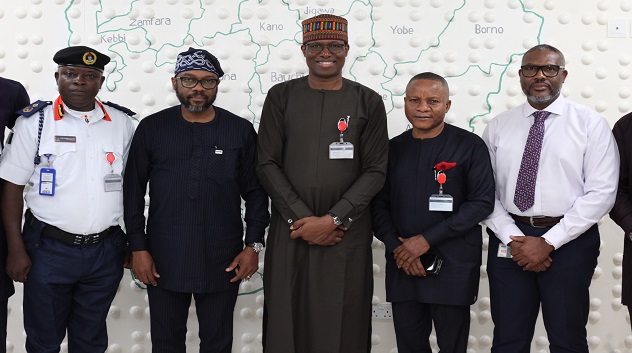Telecom
Harnessing Mobile Payment to Boost Economic Growth

By Adeniyi Ogunfowoke,
Not only in Nigeria but across the continent of Africa, mobile penetration has significantly increased. The Jumia Mobile Report 2018 found that Nigeria remains Africa’s largest mobile market, with about 162 million subscribers and a penetration rate of 84%. This has been complemented by the fact that mobile phones are now affordable. In 2014, phones sold on Jumia were priced an average of $216 and by 2017 this price had gone down to $100. In Africa, the price dipped from $165 to $96 in the same period.
The laudable rise means that more and more Africans will utilise their mobile or smartphone for all kinds of activities or functions including communication, shopping and importantly payment. Today, mobile payment has grown compared to 10 years ago. Thanks to increased usage of mobile phones to transact business. The Nigeria Bureau of Statistics reported that the volume and value of Mobile Payment transactions in the first quarter of 2018 grew by 7.0 per cent to N329 billion from N307 billion in Q4’17.
These figures show that mobile payment can contribute abundantly to the growth of the Nigerian economy with the help of the Central Bank of Nigeria and Fintechs.
Role of banks
The Nigerian banking system has been completely revolutionised by technology. It has forced banks-new or old generation to become creative and innovative. Some of the innovations that have disrupted the banking sector are mobile apps and Unstructured Supplementary Service Data USSD (quick code). With these two, you can perform any transaction whether you have an internet enabled phone or not.
Fintechs
Fintechs are no longer new in Nigeria. They serve as payment gateways for businesses and they have made mobile or web transaction seamless. For the millions of shoppers who buy items, book hotels and order food with their Jumia app, the payment gateway is Jumia Pay. With Jumia Pay, refunds are easily processed and orders are easily paid for.
An uncomplicated synergy between banks and Fintechs with the regulation of the CBN (as well as shielding the financial sector from fraudsters) will definitely lead to economic development for Nigeria.
Harnessing mobile payments for economic growth
The phenomenal growth of fintech is helping organisations in Nigeria deliver a new generation of innovative products and services.
To achieve this and successfully harness the power of mobile, organisations in Nigeria’s mobile banking and payments ecosystem must deliver compelling and responsive end-user experiences. They must also implement strong and secure authentication methods that instil confidence among users in mobile banking and payments.
Delivering superior user experiences
End-users today expect websites to deliver the same experience on mobile as they do on personal computers. For Jumia, Nigeria’s no 1 shopping destination, the app has been designed in such a way that its users do not find it difficult to navigate. So, when it comes to delivering superior user experiences in mobile apps, Jumia is number one.
Ensuring security
For mobile commerce and electronic banking to deliver its benefits across Nigeria, delivering a secure mobile experience, regardless of device and network, is compulsory.
As more and more business-critical applications and financial services adopt the public or private cloud, it has become essential to protect organisations and users from criminal efforts to steal data or conduct financial malfeasance. Mobile devices are now being targeted because they may serve as a back-channel into a network, thus making a network-centric security approach inadequate for an increasingly mobile-based economy.
Security within a mobile commerce ecosystem needs to be intelligence-driven and provide the flexibility and scalability to adapt to dynamic requirements.
Telecom
IHS Nigeria Hosts Telecom Industry Stakeholders to Discuss Protection of Critical National Infrastructure in Lagos State

IHS Nigeria, part of the IHS Holding Limited (NYSE: IHS) (“IHS Towers”) group, one of the largest independent owners, operators, and developers of shared communications infrastructure in the world by tower count, recently hosted a high-level meeting of stakeholders in the telecommunications industry including regulators and law enforcement agencies, at its corporate headquarters in Lagos.

The meeting was organized to develop a multi-stakeholder action plan for the protection of Critical National Information Infrastructure (CNII) assets in Lagos state.
Recognizing the importance of communications infrastructure as the backbone of national security, economic growth and social cohesion, the stakeholders at the meeting convened under the umbrella of the Association of Licensed Telecoms Operators of Nigeria (ALTON) agreed on the urgent need for collaborative solutions to ensure the protection of these vital assets.
The meeting was attended by senior representatives from the telecommunications stakeholder groups and regulatory bodies including the Nigerian Communications Commission (NCC), the Association of Licensed Telecoms Operators of Nigeria (ALTON), Association of Telecommunications Companies of Nigeria (ATCON) and the Lagos State Infrastructure Maintenance and Regulatory Agency (LASIMRA).
Also in attendance were representatives from the Mobile Network Operators (MNOs), and InfraCos as well as the Nigeria Security and Civil Defence Corps (NSCDC), the security agency tasked with the protection of Critical National Infrastructure across the country.
Following extensive deliberations, the stakeholders resolved to establish a working group dedicated to addressing key industry challenges, including the vandalization and theft of telecommunications infrastructure, arbitrary shutdown of base stations, fiber cuts due to road construction and the denial of access by unauthorized individuals by leveraging technology for real-time monitoring and protection, strengthening security measures around telecommunication sites and collaborating more with the security and regulatory agencies to mitigate these challenges.
The stakeholders underscored the need to prioritize deterrence and prevention of these incidents and highlighted the importance of public awareness campaigns to sensitize the host communities and public of the need to protect telecommunications infrastructure in their localities.
Dapo Otunla, Senior Vice President & Chief Corporate Services Officer of IHS Nigeria, commented, “The protection of Critical National Information Infrastructure (CNII) has been a critical concern for all industry stakeholders.
“We are experiencing daily losses of assets, which significantly impact on the quality of service delivered to subscribers. Addressing these issues is paramount to sustaining Nigeria’s digital ecosystem and meeting regulatory expectations.”
Telecom
MTN Champs Continental Relays: Over 1,000 Athletes Gear Up for Lagos Showcase

Over 1ooo athletes are already set to participate in the upcoming MTN Champs Continental Relays, taking place between April 9 and April 12 at the UNILAG and Yabatech Sports complexes. Organisers anticipate even more registrations before the April 2 deadline.

MTN Champs is Nigeria’s largest grassroots sports competition, a collaboration between MTN Nigeria and Making of Champs (MoC), providing a platform for young athletes to showcase their talents and potentially represent Nigeria on the global stage.
Osaze Ebueku, Senior Manager, Go-to-Market at MTN Nigeria at the opening ceremony of the MTN Champs Classics events in Benin had emphasised the long-term vision behind MTN Champs: “We’re building future Olympians for Nigeria. MTN Champs is about more than competition. It’s about changing lives.”
The continental relays mark the second leg of the MTN Champs Season 3, following the Classics competition in Benin, which saw 4,371 event entries from 2,056 athletes.
As of March 24, the Lagos leg had already recorded 2,821 event entries across different age categories, highlighting the growing enthusiasm around the competition.
The registered athletes are spread across four categories, with 174 in the Cadet (U-14) category, 388 in Youth (U-17), 270 in Junior (U-20), and 279 in the Senior category.
To ensure smooth participation, organisers have outlined important guidelines. Athletes in the Cadet, Youth, and Junior categories must submit a signed Parental Consent Form, while all registered schools and athletes must collect their competition bibs by April 8 at the competition venue to confirm their participation and secure their place on the start list.
Sports enthusiasts can look forward to an electrifying showcase of emerging talent, as young athletes seize the opportunity to prove their skills on a professional stage.
Telecom
Again, Labour Fumes, Threatens Shutdown of Telcos over Non-Implementation of 15 Percent Tariff Reduction

Nigeria Labour Congress (NLC) is threatening to shut down operations of telecommunications companies over their refusal to comment on the 15 percent reduction in telecom tariffs.

Recall that that organised labour, through the NLC, forced the federal government and NCC to reduce the telecommunications tariff hike from 50% to 35% after threatening to shut down telecom operations and the NCC in response to what it saw as exploitative economic policies amidst excruciating suffering, hardship, and deepening poverty.
The government had previously formed a 10-member committee, consisting of five government and NLC representatives, to deliberate on the thorny topic of tariff hikes within two weeks and report back before making a final decision on the new telecom tariff structure.
Consequently, on Friday, February 21, 2025, the committee, at a meeting conducted in the office of the National Security Adviser (NSA) that lasted nearly three hours, decided on a 15 per cent tariff cut.
According to reports, in accordance with the conditions of the agreement, an official communiqué announcing the tariff reduction was scheduled to be released on Saturday, February 22.
According to Chronicle,iIt was said that the meeting began at 4:00 p.m. and concluded around 7:00 p.m., during which NLC representatives insisted that the tariff hike be withdrawn.
According to sources, after significant pressure from NLC representatives in the 10-man committee, the government and NCC gave up and agreed on the 15% decrease, which the government or NCC should have announced the next day.
However, at the time of this report, no such announcement has been made.
Leaders of the labour union are not taking the government’s failure to announce or implement the 15% tariff decrease lightly, suspecting that they have been duped.
The Labour leaders have therefore resolved to directly confront the NCC and telecommunications operators next week.
Though it has been reported that the date for the start of the industrial action against the NCC and telecom providers has been set and mobilisation is underway, the information is being closely guarded.
One of the leaders of the NLC stated that “We have received directives to commence mobilisation since last week. In fact, the date for the commencement of industrial action against the NCC and telecommunication operators’ offices across the country has been fixed. We have been warned not to disclose the date because the plan is to take all concerned by surprise. We are not giving any notice because we thought we had resolved this matter over a month ago. It is as if we have been scammed. Therefore, we have decided to confront the matter head-on.”
On February 12, the NLC expressed outrage over telecommunications companies’ tariff hikes, despite an earlier agreement with the Federal Government and the NCC.
According to the Labour union, “If the telecommunications companies fail to revert to the old tariff by the end of February 2025, a total shutdown of their operations nationwide will commence on March 1, 2025.”
To demonstrate its seriousness, the NLC declared that, as a first step in resisting the arbitrary tariff hike, it directed that workers and other willing citizens boycott the services of MTN, AIRTEL, and GLO daily between 11:00 a.m. and 2:00 p.m. until the end.
On Tuesday, February 11, NLC leaders issued a communiqué at the conclusion of their Central Working Committee (CWC) meeting in Lokoja, Kogi State, urging workers and citizens to suspend data purchases from telecommunications companies, which have also become one of their most effective tools for exploiting Nigerian citizens.
The communiqué, signed by Joe Ajaero and Emma Ugboaja, Congress’ President and General Secretary, respectively, instructed NLC State Councils and industrial union affiliates to quickly sensitise and mobilise their members and the general public in their jurisdictions.

 News3 days ago
News3 days agoCourt Throws Out Falana’s Fraud Case against Ekeh, Zinox Boss and Others

 E-Financial3 days ago
E-Financial3 days agoHeritage Bank Depositors Seek National Assembly’s Help to Recover Trapped Funds

 Telecom2 days ago
Telecom2 days agoAgain, Labour Fumes, Threatens Shutdown of Telcos over Non-Implementation of 15 Percent Tariff Reduction

 Telecom3 days ago
Telecom3 days agoNokia Unwraps 5G Gateway for Home Internet

 News3 days ago
News3 days agoFG Receives N1Bn Grant from Airtel Africa to Boost 3MTT Programme

 News3 days ago
News3 days agoFG to Halt Solar Panel Imports, Pushes for Local Manufacturing

 E-Business2 days ago
E-Business2 days agoQNET Disassociates From Fraudulent Academy in Abuja, Supports EFCC Arrest

 News2 days ago
News2 days agoNNPC Ready to Go to Capital Market for IPO- CFIO



























